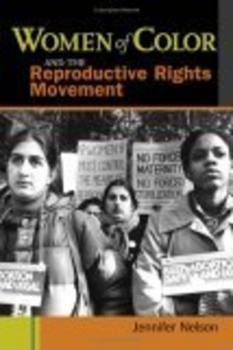ТОП просматриваемых книг сайта:
Jennifer Nelson
Список книг автора Jennifer NelsonАннотация
While most people believe that the movement to secure voluntary reproductive control for women centered solely on abortion rights, for many women abortion was not the only, or even primary, focus.Jennifer Nelson tells the story of the feminist struggle for legal abortion and reproductive rights in the 1960s, 1970s, and early 1980s through the particular contributions of women of color. She explores the relationship between second-wave feminists, who were concerned with a woman's right to choose, Black and Puerto Rican Nationalists, who were concerned that Black and Puerto Rican women have as many children as possible “for the revolution,” and women of color themselves, who negotiated between them. Contrary to popular belief, Nelson shows that women of color were able to successfully remake the mainstream women's liberation and abortion rights movements by appropriating select aspects of Black Nationalist politics—including addressing sterilization abuse, access to affordable childcare and healthcare, and ways to raise children out of poverty—for feminist discourse.
Аннотация
In 1948, the Constitution of the World Health Organization declared, “Health is a state of complete physical, mental and social well-being and not merely the absence of disease or infirmity.” Yet this idea was not predominant in the United States immediately after World War II, especially when it came to women’s reproductive health. Both legal and medical institutions—and the male legislators and physicians who populated those institutions—reinforced women’s second class social status and restricted their ability to make their own choices about reproductive health care. In More Than Medicine, Jennifer Nelson reveals how feminists of the ‘60s and ‘70s applied the lessons of the new left and civil rights movements to generate a women’s health movement. The new movement shifted from the struggle to revolutionize health care to the focus of ending sex discrimination and gender stereotypes perpetuated in mainstream medical contexts. Moving from the campaign for legal abortion to the creation of community clinics and feminist health centers, Nelson illustrates how these activists revolutionized health care by associating it with the changing social landscape in which women had power to control their own life choices. More Than Medicine poignantly reveals how social justice activists in the United States gradually transformed the meaning of health care, pairing traditional notions of medicine with less conventional ideas of “healthy” social and political environments.


